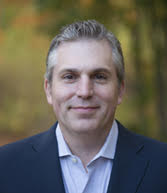The National Brain Tumor Society (NBTS) announced the launch of its new flagship research initiative, the DNA Damage Response Consortium, in partnership with Yale Cancer Center. The consortium will bring together a diverse team of adult and pediatric researchers to advance a new class of potential treatments that can target a brain tumor’s DNA damage response network.

Ranjit Bindra, MD
“The DNA Damage Response (DDR) is a highly conserved network utilized to repair broken DNA in the genomes of our normal cells,” explained Ranjit Bindra, MD, Harvey and Kate Cushing Professor of Therapeutic Radiology and Scientific Director of the Chênevert Family Brain Tumor Center at Smilow Cancer Hospital and Yale Cancer Center. “Members of this consortium and others have discovered that the DDR is often dysregulated in brain tumor cells, which reveals novel vulnerabilities that can be exploited for a therapeutic gain, thus allowing us to selectively target tumor over normal tissue.”
The Research
NBTS’s DDR Consortium will have the ability to incubate this emerging area of encouraging research and propel new treatments forward for multiple types of adult and pediatric glioma brain tumors, including glioblastoma, oligodendroglioma, astrocytoma, and ependymoma. The consortium plans to serve as a sophisticated and well-equipped vehicle that biotechnology companies with DDR-targeting compounds can engage for efficient experimental drug qualification by an expert and experienced team.
“With drugs designed to attack tumors’ DDR network already transforming other difficult-to-treat cancers, this strategy needs to be quickly and expertly tested for brain tumor patients,” added Kirk Tanner, PhD, Chief Scientific Officer of the National Brain Tumor Society.

Kirk Tanner, PhD

David Arons
“NBTS strongly believes that existing and future drugs and combinations discovered and advanced by this consortium have the potential to transform the treatment landscape for brain tumor patients,” said David Arons, Chief Executive Officer of the National Brain Tumor Society.
More than $1 million is being committed to the start-up phase of the consortium’s development, with additional funding planned as the initiative advances. Initial funding is the result of philanthropic support raised by NBTS donors, including support from StacheStrong, a 501(c)3 nonprofit devoted to raising funds and awareness for brain cancer research.

